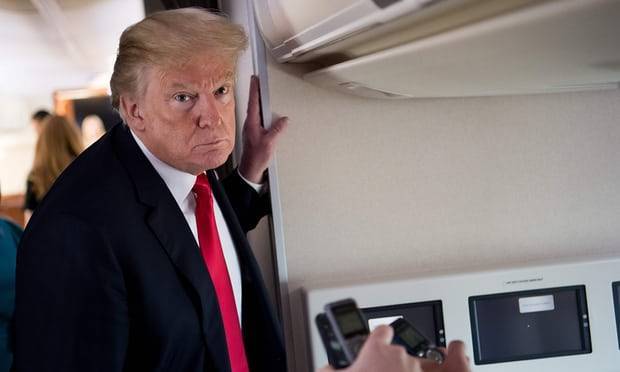The administration released a wide-ranging list of Chinese goods it proposes be hit with tariffs, including hundreds of food products as well as tobacco, coal, chemicals and tyres, dog and cat food, and consumer electronics including television components.
“For over a year, the Trump administration has patiently urged China to stop its unfair practices, open its market, and engage in true market competition,” US trade representative Robert Lighthizer said in announcing the proposed tariffs on Tuesday night.
“Rather than address our legitimate concerns, China has begun to retaliate against US products ... There is no justification for such action,” he said in a statement.
On Wednesday, China had not responded directly to the tariffs, which would come on top of two other rounds. When president Donald Trump raised the possibility last month of placing tariffs on an additional $200bn in Chinese goods, China’s ministry of commerce said on June 19, “If the US loses rationality and releases a list, China will have to fight back with comprehensive measures of the same quantity and quality.”
In Beijing, Li Chenggang, assistant minister at the ministry, said at a forum in Beijing that the latest US proposals interfered with the globalisation of the world economy and that China’s support for a multilateral trade system would not change.
An English-language editorial in the state-run China Daily that has now been taken down said, without mentioning the new tariffs. “China has no option but to fight fire with fire. It has to resolutely fight back while taking proper measures to help minimise the cost to domestic enterprises and further open up its economy to global investors.”
Another editorial in China Daily said, “If Trump launches an all-out trade war, the US economy and society may not be able to withstand the impact of countermeasures from China and other economies.”
The Shanghai Composite index was 1.6% lower, while the blue-chip CSI300 index fell 1.7 percent. Hong Kong’s Hang Seng index was down 1.4% in midday trading. Following the announcement, South Korea’s KOSPI lost 1% and Japan’s Nikkei fell 1.2%. The offshore yuan fell more than 0.5% in early trading on Wednesday.
Dow Jones mini futures fell as much as 1% while S&P500 e-mini futures, the world’s most liquid futures, were down 0.8%.
After months of negotiations, last week Washington imposed 25% tariffs on $34bn of Chinese imports, and Beijing responded immediately with matching tariffs on the same amount of US exports to China.
The tariffs would not go into effect for another two months, leaving time for public comments. Ma Jun, a former economist at China’s central bank, told Xinhua, “There are still all kinds of uncertainty over whether the tariff will be imposed and on what products.”
Donald Trump has said he might ultimately impose tariffs on more than $500bn worth of Chinese goods – roughly the total amount of US imports from China last year. There are currently no signs of talks between the two sides.
Some US business groups and senior lawmakers criticised the latest action on Tuesday, with Senate finance committee chairman Orrin Hatch, a Republican, saying it “appears reckless and is not a targeted approach”.
The US chamber of commerce, which has supported Trump’s tax cuts and efforts to reduce regulation of businesses, also criticised the administration’s move.
“Tariffs are taxes, plain and simple. Imposing taxes on another $200bn worth of products will raise the costs of everyday goods for American families, farmers, ranchers, workers, and job creators. It will also result in retaliatory tariffs, further hurting American workers,” a chamber spokeswoman said.
The Retail Industry Leaders Association, a lobby group representing the largest US retailers, said: “The president has broken his promise to bring maximum pain on China, minimum pain on consumers.”
“American families are the ones being punished. Consumers, businesses and the American jobs dependent on trade, are left in the crosshairs of an escalating global trade war,” said Hun Quach, the head of international trade policy for the group.
More about: #Donald-Trump
















































